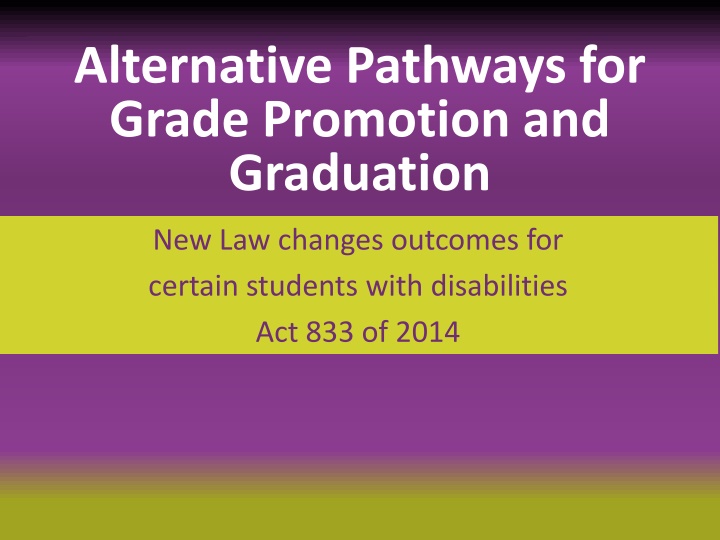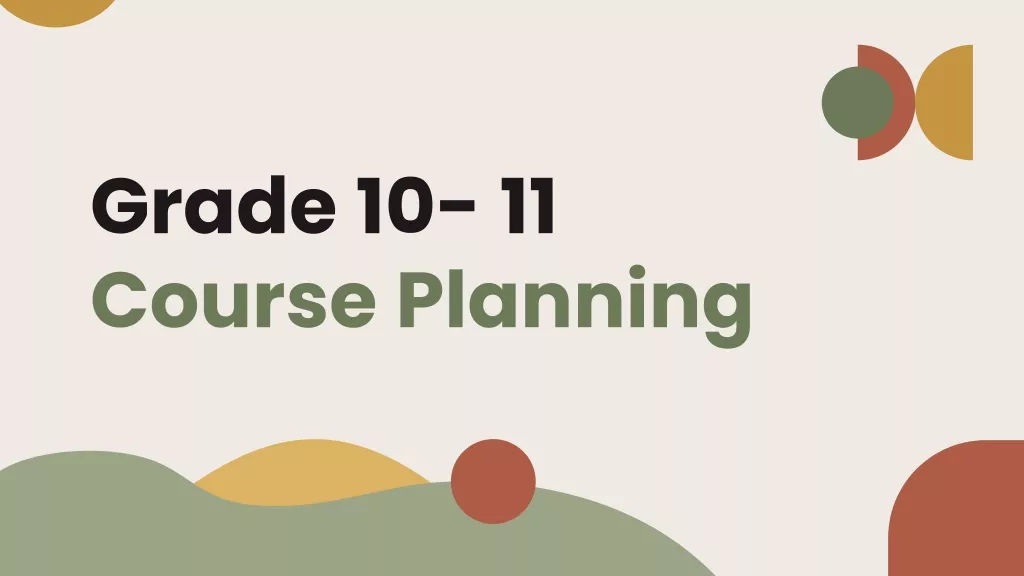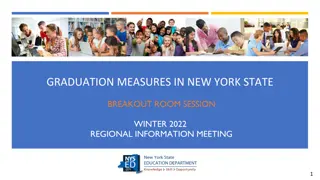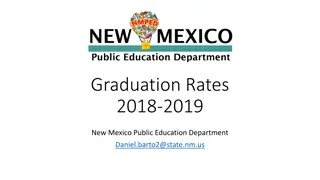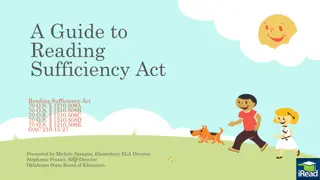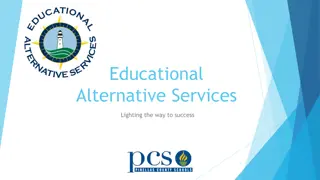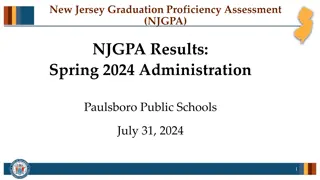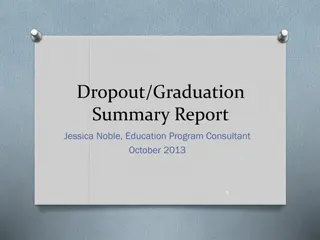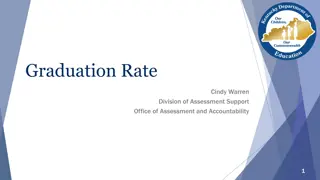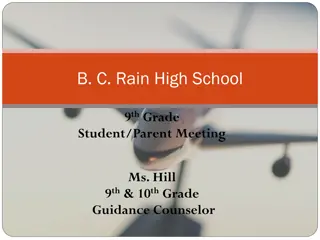Alternative Pathways for Grade Promotion and Graduation: Act 833 of 2014
Act 833 of 2014 introduces alternative pathways for grade promotion and graduation for students with disabilities in certain situations. It provides options for IEP teams to set requirements for students to move to the next grade or graduate. Eligibility criteria, requirements to graduate, testing procedures, and expectations are outlined to support student success.
Uploaded on Sep 22, 2024 | 3 Views
Download Presentation

Please find below an Image/Link to download the presentation.
The content on the website is provided AS IS for your information and personal use only. It may not be sold, licensed, or shared on other websites without obtaining consent from the author.If you encounter any issues during the download, it is possible that the publisher has removed the file from their server.
You are allowed to download the files provided on this website for personal or commercial use, subject to the condition that they are used lawfully. All files are the property of their respective owners.
The content on the website is provided AS IS for your information and personal use only. It may not be sold, licensed, or shared on other websites without obtaining consent from the author.
E N D
Presentation Transcript
Alternative Pathways for Grade Promotion and Graduation New Law changes outcomes for certain students with disabilities Act 833 of 2014
Act 833 (HB1015) Alternative Pathway for Promotion and Graduation IEP teams of certain students with disabilities have the option of determining what a student must perform to move to the next grade (promotion) or graduate. Some students may have their IEP goals be considered as a requirement for grade promotion and earning credits toward graduation.
Which Students are Eligible? Promotion Did not pass standardized test (prior year) Did not meet requirements for promotion (prior year) Graduation Did not pass standardized tests: any two (2) of most recent three (3) years; or, two (2) administrations of any End-of-Course test.
Which Students are NOT Eligible? Students with disabilities who have met requirements on standardized tests or for promotion and/or graduation will not be provided an alternative pathway to be promoted to the next grade or graduate.
Requirements to Graduate Student Characteristic Requirements to Graduate Met state-established benchmarks on all previous LEAP and End-of-Course (EOC) tests Must earn: Carnegie Credits; and, Meet state-established benchmarks on any required EOC tests. Alternative pathway is not allowed. Has not met benchmarks on iLEAP, LEAP and EOC tests Must earn: Carnegie Credits required for Career Diploma per IEP team established minimum performance requirements. Not required to meet state-established benchmarks on any EOC tests. On extended standards - Alternate Assessment-1 (LAA-1) Must meet one of three criteria: Employment and self-help skills; or Employability skills and self-help skills; or, Access to services or education options. Not required to earn Carnegie Credits or take EOC.
Testing Students will continue to take all appropriate tests for the classes for which they are enrolled. Student performance on standardized tests will continue to count toward school and district accountability. IEP Teams of students on an alternative pathway will establish performance requirements, if any, on standardized tests as requirements for grade promotion or earning Carnegie Credit.
Is Alternative Pathway Lowering Expectations? No. Currently, many students with disabilities are being put on non-diploma tracks at relatively young ages. Decisions are being made as early as 3rd grade that these students will not earn a diploma. This alternative pathway will give the students with disabilities the opportunity to work towards goals without being taken off of a diploma pathway.
Get Ready for Changes Within 30 days of the student entering the grade level or high school course, the IEP team must establish minimum performance requirements relevant to promotion or graduation requirements Performance requirements established by the IEP team include, but are not limited to, what a student must score on the standardized assessment or end of course tests.
Focus for 2014-2015 Within the first 30 days: High school students who have a way to earn enough Carnegie Units prior to turning 22. All young students (freshman/sophomores) Older students who have some Carnegie Units High School Students on LAA-1 Eighth Grade Students at risk of not being promoted to High School Ever after: Include alternative requirements in IEPs of eligible students.
What does not change? All rights and responsibilities related to the Individual with Disabilities Education Act Access to the Academic Curriculum that all students are learning IEPs should continue to be aligned with the curriculum Participation on Standardized Assessments Parent/Student Rights
For More Information http://www.laddc.org/content.cfm?id=563 or www.laddc.org/promotion-diploma-pathways
